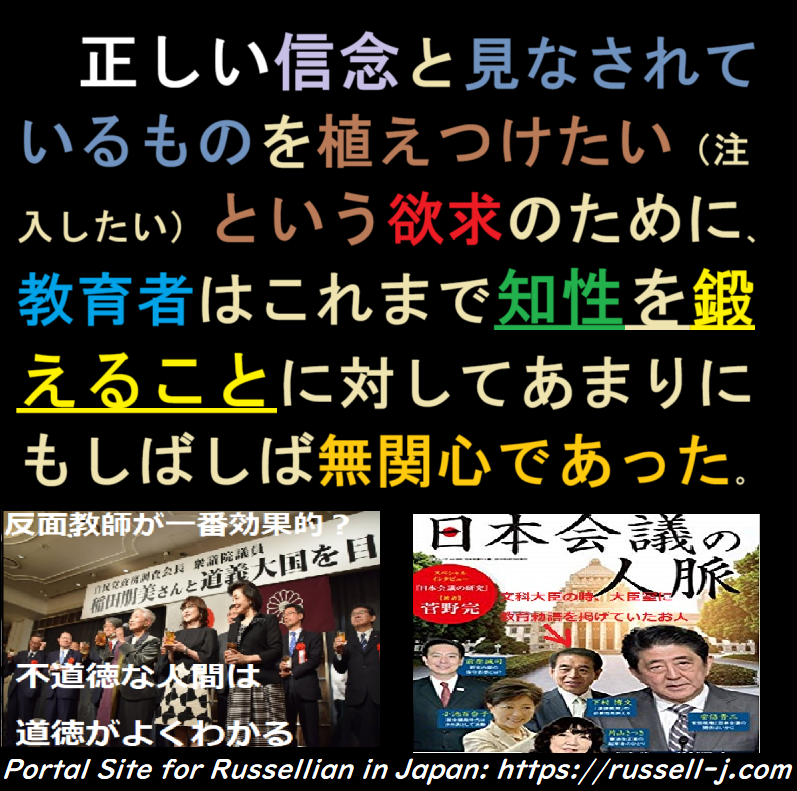
正しい信念と見なされているものを植えつけたい(注入したい)という欲求のために、教育者はこれまで知性を鍛えることに対してあまりにもしばしば無関心であった。
The desire to instil what are regarded as correct beliefs has made educationists too often indifferent to the training of intelligence.
Source: On Education, especially in early childhood, 1926, by Bertrand Russell
More info.: https://russell-j.com/beginner/OE02-180.HTM
<寸言>
義務教育においては、生徒(子ども)に「正しい知識」と「正しい道徳感覚」を身につけさせることが教師の第一の役割だと、多くの親は考えています。しかし、ある程度人生経験を積んだ大人であれば、「正しい」として教えられてきた知識や道徳が、実際に正しくなかったと気づいた経験を少なからず持っているのではないでしょうか?
だとすれば、誰もが疑うことのできないような科学的知識や論理的思考法を学ばせるとともに、「軽信」に陥らない懐疑的な態度及び確かな知識を身につけさせることが、教育において非常に重要であるはずです。
そもそも、「何が正しいか」はそれほど明白なものではありません。それは国や社会、時代や状況によって異なることが少なくありません。不幸なことに、自分自身や自国に対してはその点を理解していても、他人や他国に対しては、そうした相対性を無視して一定の考え方や道徳を押しつけようとする人が少なくありません。
「本日のラッセルの言葉」は教育者に焦点をあてていますが、このような傾向は教育者に限らず、私たち一人ひとりのなかにもあるとういことを、多くの人が実感しているのではないでしょうか?
In the context of compulsory education, many parents believe that a teacher's primary role is to instill "correct knowledge" and "proper moral values" in their students (i.e., children).
However, adults with a certain degree of life experience have likely had the experience of realizing that some of the knowledge or moral values they were once taught as "correct" were, in fact, not correct at all.
If that is the case, then it should be considered extremely important in education not only to teach scientific knowledge and logical thinking that no one can reasonably doubt, but also to cultivate a skeptical attitude that helps them avoid being easily fooled, as well as the ability to acquire reliable knowledge.
After all, what is "correct" is not always self-evident. It often varies depending on the country, society, historical period, or circumstances.
Unfortunately, while some people recognize this relativity when it comes to themselves or their own country, they often fail to apply the same understanding to others or to other nations, and instead try to impose a particular way of thinking or moral code.
Although today's "Words of Russell" focus on educators, many would agree that this tendency is not limited to educators alone -- it exists within each of us.